Welcome to the Houston Bankruptcy Lawyer. Our bankruptcy lawyer firm is dedicated to providing quality legal services to those individuals and businesses struggling with debt. Our bankruptcy attorneys have extensive experience in bankruptcy law, and understand the complexities of the bankruptcy process.
Call our office now for a consultation (832) 975-0366. We understand that filing for bankruptcy can be a stressful and difficult decision, and we are here to help you through every step of the process. We will provide you with the legal advice and guidance you need to make the best decisions for your financial future.
Our bankruptcy lawyers are dedicated to helping you navigate the bankruptcy process and get the best outcome for your situation. We will work with you to ensure that all of your rights are fully protected and that you receive the best possible outcome. We look forward to helping you get a fresh start.
Houston Bankruptcy Lawyer Talks About Your Options
When the burden of debt becomes too much to bear, it’s time to explore your options. A Houston bankruptcy lawyer can help you understand the legal processes involved in filing for bankruptcy and find the best solution for you.
With a qualified bankruptcy lawyer firm, you can rest assured that your case is in the right hands. Bankruptcy attorneys in Houston offer a variety of services to individuals and businesses, including Chapter 7 and Chapter 13 bankruptcy filings.
With the help of a knowledgeable bankruptcy lawyer, you can get the fresh start you need and get back on track financially. If you’re considering filing for bankruptcy, it’s important to consult with a Houston bankruptcy lawyer or Houston bankruptcy attorney to ensure that you’re making the right decision. Bankruptcy lawyers can provide invaluable advice on the best course of action for your individual situation. With the right advice from a bankruptcy attorney, you can make the best decision for your future.
Houston Bankruptcy Attorney Cost & Fees
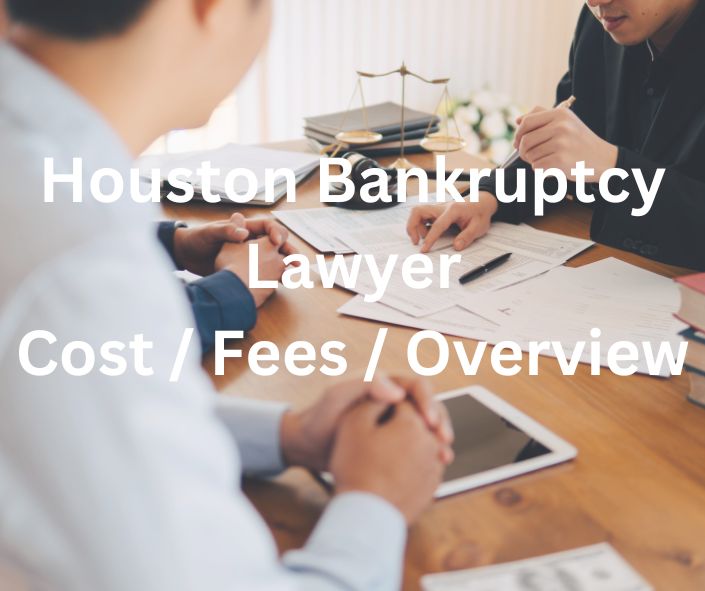
Navigating the complexities of bankruptcy in Houston requires not only a deep understanding of the law but also a clear grasp of the associated costs. From attorney fees to court-related expenses, understanding the financial implications is crucial for anyone considering this legal avenue.
Cost to Hire a Bankruptcy Lawyer in Houston:
The cost to hire a bankruptcy lawyer in Houston can vary based on the complexity of the case, the lawyer’s experience, and the specific services required. Typically, lawyers may charge a flat fee for simpler cases, such as a Chapter 7 bankruptcy, while more complex cases, like Chapter 11 or 13, might be billed hourly. It’s essential to discuss fees upfront and understand any additional charges that might arise during the process.
Bankruptcy Court and Filing Fees:
The U.S. Bankruptcy Court for the Eastern District of Texas provides a detailed fee schedule for various bankruptcy-related actions:
- Chapter 7 Filing Fee: $338.00
- Chapter 9 Filing Fee: $1,738.00
- Chapter 11 (non-railroad) Filing Fee: $1,738.00
- Chapter 11 (railroad) Filing Fee: $1,571.00
- Chapter 12 Filing Fee: $278.00
- Chapter 13 Filing Fee: $313.00
- Chapter 15 (Ancillary) Filing Fee: $1,738.00
Additionally, there are fees associated with other actions, such as reopening a case, adversary proceedings, conversions, motions, and more. For a comprehensive list of fees, please refer to the official fee schedule.
NOTE: ALL OF THESE FEES CHANGE REGULARLY. DO NOT RELY ON ANY DOLLAR AMOUNTS STATED ON THIS PAGE. ASK YOUR ATTORNEY FOR THE LATEST COST INFO.
Additional Costs Associated With Filing Bankruptcy
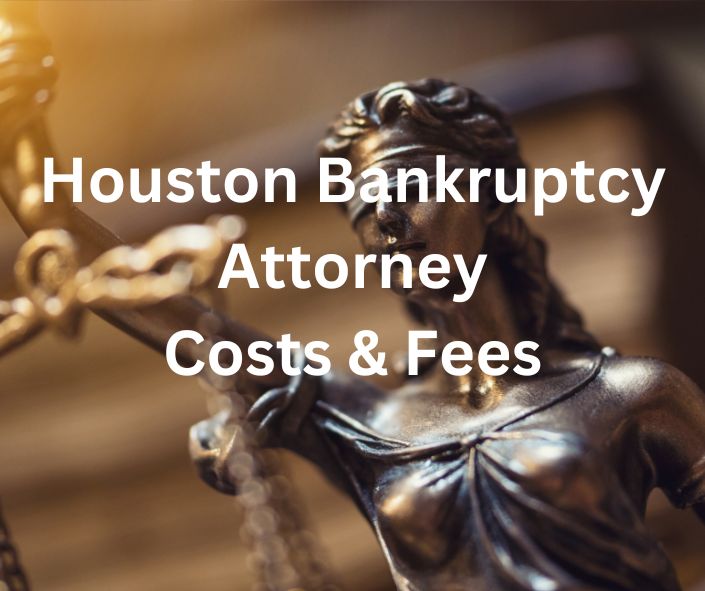 Beyond the lawyer’s fees and court charges, there might be other costs to consider. These can include credit counseling courses, document retrieval fees, and potential costs for amending filings or addressing specific motions.
Beyond the lawyer’s fees and court charges, there might be other costs to consider. These can include credit counseling courses, document retrieval fees, and potential costs for amending filings or addressing specific motions.
Understanding the costs associated with filing for bankruptcy in Houston is crucial for informed decision-making. It’s always advisable to discuss all potential fees with your Houston Bankruptcy Lawyer to ensure transparency and avoid any unexpected expenses.
What to Expect from a Bankruptcy Law Firm
The legal professionals at a Bankruptcy Law Firm understand the financial and emotional difficulties of filing for bankruptcy. Our experienced bankruptcy lawyers and attorneys are dedicated to providing personalized, comprehensive legal services to their clients. They are committed to helping individuals, families, and businesses understand the bankruptcy process and make informed decisions about their financial future.
Our Bankruptcy Law Firm clients can expect to receive experienced legal advice from experienced bankruptcy attorneys. These professionals are knowledgeable about the different types of bankruptcy and can help clients determine which type of bankruptcy is best for their situation.
With their assistance, clients can make informed decisions about the best course of action for their financial situation. Our attorneys also provide personalized legal services to help clients navigate the complex bankruptcy process. From filing paperwork to attending court hearings, our Texas bankruptcy lawyers are dedicated to helping clients through every step of the bankruptcy process.
How Can a Bankruptcy Attorney Help You?
When it comes to filing for bankruptcy, having the right lawyer on your side can mean the difference between success and failure.
Our Houston bankruptcy attorney can provide the expertise and guidance you need to navigate the complexities of filing bankruptcy in Texas. With years of experience working with clients in the Houston area, an experience bankruptcy law firm can help you determine the best course of action for your unique situation. From filing the initial paperwork to appearing in court, we can assist you throughout the entire process.
We will provide you with the necessary information to make informed decisions about your financial future. A bankruptcy attorney can also help you negotiate with creditors to reduce your debt or obtain a payment plan. With the help of a bankruptcy attorney, you can be sure that your rights are being protected and that you are getting the best possible outcome.
Understanding the Bankruptcy Process
 When you are considering filing for bankruptcy, it is important to understand the process and the steps involved. Working with a qualified attorney can help you navigate the process and ensure that your rights are protected. At our Houston bankruptcy firm, our lawyers have the knowledge and expertise to help you understand the process and provide you with the best possible outcome.
When you are considering filing for bankruptcy, it is important to understand the process and the steps involved. Working with a qualified attorney can help you navigate the process and ensure that your rights are protected. At our Houston bankruptcy firm, our lawyers have the knowledge and expertise to help you understand the process and provide you with the best possible outcome.
We understand the complexities of the bankruptcy process and can provide you with the guidance you need. Our bankruptcy lawyers and attorneys will work with you to ensure that your rights are protected and that you get the best outcome. We are dedicated to helping you navigate the bankruptcy process and get back on your feet.
Common Mistakes to Avoid with Bankruptcy Lawyers
When it comes to filing for bankruptcy, it can be a daunting process. It is important to make sure you have the right team of professionals to help guide you through the process.
A Houston Bankruptcy Lawyer will be able to provide the legal advice and guidance you need to make sure you are making the right decisions. When selecting a bankruptcy lawyer, it is important to do your research.
Make sure you understand the experience and qualifications of the attorneys you are considering. You should also ask for references from other clients so that you can get an idea of the quality of service they provide. Additionally, make sure to ask questions about fees and services to ensure you are getting the best value for your money.
By doing your research and finding the right law firm , you can ensure that your bankruptcy filing process goes as smoothly and efficiently as possible, while avoiding the typical mistakes people make when filing bankruptcy.
Bankruptcy Attorney Near Me
Finding the right bankruptcy attorney in Houston can be a daunting task, especially when you are facing a difficult financial situation. However, with the right research and due diligence, you can find the best bankruptcy lawyer for your needs.
Start by researching the bankruptcy lawyers in the Houston area and get a sense of their experience, specialties, and fees. It is also helpful to read reviews of the bankruptcy lawyers in Houston to get an idea of their reputation and customer service.
When you have narrowed down your list of potential bankruptcy attorneys, be sure to schedule a consultation with each one. This will give you an opportunity to ask questions and get a better understanding of the services they provide.
During the consultation, be sure to ask about the lawyer’s experience in bankruptcy law, their fees, and the types of cases they handle. Additionally, ask about the attorney’s availability and how often they communicate with their clients. Finally, make sure to inquire about the lawyer’s success rate in the cases they have handled. By doing your research and asking the right questions, you can find the best bankruptcy lawyer in Houston for your situation. With the right attorney on your side, you can get the debt relief you need and the fresh start you deserve.
In conclusion, when facing bankruptcy, it is important to understand your options and to find the best bankruptcy attorney in Houston. A qualified Houston bankruptcy lawyer can help you navigate the process, avoid common mistakes, and work to protect your assets. With the right legal representation, you can be confident that your financial future is secure. If you are in need of a Houston bankruptcy attorney, consider researching local firms to find an experienced attorney who can help you reach the best possible outcome.
Bankruptcy Attorney FAQs
What Is Chapter 7 Bankruptcy in Texas?
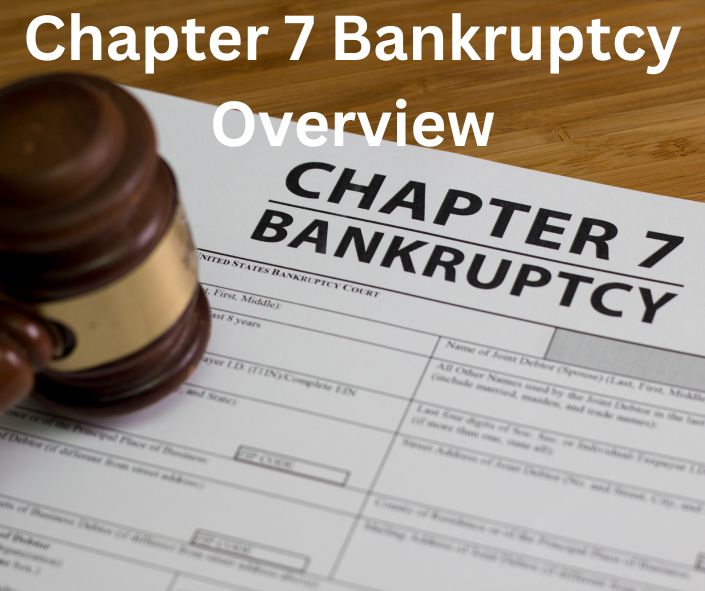 Chapter 7 bankruptcy, often referred to as “liquidation” or “straight” bankruptcy, is one of the most common forms of bankruptcy filed in Texas. It provides individuals with a fresh start by discharging most of their unsecured debts. Here’s what you need to know:
Chapter 7 bankruptcy, often referred to as “liquidation” or “straight” bankruptcy, is one of the most common forms of bankruptcy filed in Texas. It provides individuals with a fresh start by discharging most of their unsecured debts. Here’s what you need to know:
1. Chapter 7 Bankruptcy Definition: Chapter 7 bankruptcy allows individuals to eliminate a significant portion of their unsecured debts, such as credit card bills, medical expenses, and personal loans. In this process, a trustee is appointed to liquidate the debtor’s non-exempt assets and distribute the proceeds to creditors.
2. Texas Exemptions in Chapter 7: Texas offers generous exemptions that allow debtors to protect their property in a Chapter 7 bankruptcy. These include:
- Homestead Exemption: Texas law allows debtors to exempt an unlimited amount of value in their home or other property covered by the homestead exemption.
- Personal Property: Texas exemptions also cover personal property such as home furnishings, clothing, and vehicles, up to a certain value.
It’s essential to consult with a Houston Bankruptcy Lawyer to understand the full range of exemptions available under Texas law.
3. Qualifying for Chapter 7 in Texas: To qualify for Chapter 7 bankruptcy in Texas, individuals must pass the “means test.” This test compares your monthly income to the median income for a household of your size in Texas. If your income is below the median, you qualify. If it’s above, additional calculations regarding your expenses and debts are required to determine eligibility.
4. Benefits of Chapter 7: One of the primary benefits of Chapter 7 bankruptcy is the ability to start fresh. Most of your unsecured debts are discharged, meaning you’re no longer legally obligated to pay them. Additionally, the process is relatively quick, often completed within 3-6 months.
5. Considerations Before Filing: While Chapter 7 offers numerous benefits, it’s not suitable for everyone. Those with significant equity in a home or other assets might risk losing them. Additionally, not all debts are dischargeable, including most student loans, child support, and certain tax obligations.
Conclusion: Chapter 7 bankruptcy in Texas provides a pathway for debtors to regain control of their financial situation. However, understanding the intricacies of the process, the benefits, and potential pitfalls is crucial. Consulting with a knowledgeable Houston Bankruptcy Lawyer can provide clarity and guidance tailored to your unique circumstances.
What Is Chapter 13 Bankruptcy?
Chapter 13 bankruptcy, often termed as the “wage earner’s plan,” provides individuals with an opportunity to reorganize their debts and repay them over a specified period. Unlike Chapter 7, which liquidates assets to pay off debts, Chapter 13 focuses on creating a repayment plan. Here’s a comprehensive overview:
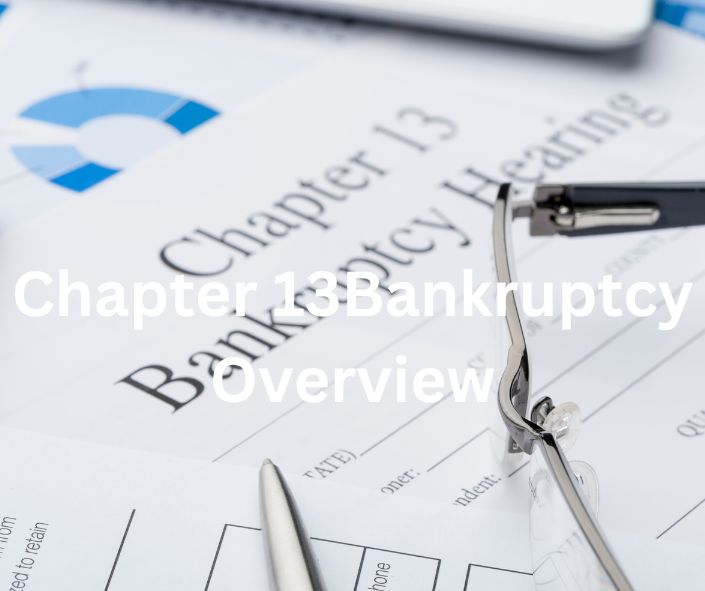 1. Overview of Chapter 13 Bankruptcy: Chapter 13 bankruptcy allows debtors to develop a plan to repay all or part of their debts over three to five years. The length of the repayment plan depends on the debtor’s monthly income and how it compares to the state median.
1. Overview of Chapter 13 Bankruptcy: Chapter 13 bankruptcy allows debtors to develop a plan to repay all or part of their debts over three to five years. The length of the repayment plan depends on the debtor’s monthly income and how it compares to the state median.
2. Benefits of Chapter 13:
- Protection of Assets: One of the primary advantages of Chapter 13 is the ability to protect assets, such as a home, from foreclosure.
- Consolidation of Debts: Debts are consolidated into a single monthly payment made to the bankruptcy trustee, who then distributes the funds to creditors.
- Flexibility: If circumstances change during the repayment period, the plan can be modified.
3. Eligibility for Chapter 13: To qualify for Chapter 13 bankruptcy:
- Debtors must have a regular source of income.
- Unsecured debts (like credit card bills) must be below a specific threshold.
- Secured debts (like mortgages) must also be below a set limit.
4. The Repayment Plan: The heart of Chapter 13 is the repayment plan. This plan details how much each creditor will receive, the length of the plan, and the amount of the monthly payments. Priority debts, such as tax obligations and child support, are typically paid in full, while unsecured debts may be paid partially or not at all, depending on the debtor’s financial situation.
5. Discharge of Debts: Upon successful completion of the repayment plan, most of the debtor’s remaining debts are discharged. However, certain debts, like student loans, child support, and alimony, are non-dischargeable.
6. Considerations Before Filing: Chapter 13 bankruptcy is a commitment. It requires discipline to make regular payments over several years. Additionally, while it offers numerous benefits, it might not be suitable for everyone, especially those without a steady income.
Conclusion: Chapter 13 bankruptcy offers a structured way for debtors to regain control of their financial situation without liquidating their assets. It’s a viable option for those who have a regular income and wish to protect valuable assets from creditors. As always, consulting with a knowledgeable bankruptcy lawyer can provide clarity and guidance tailored to individual circumstances.
What Is Chapter 11 Bankruptcy?
Chapter 11 bankruptcy, often referred to as “reorganization” bankruptcy, is primarily utilized by businesses, including corporations, partnerships, and sole proprietorships, to restructure their debts while continuing to operate. It provides an avenue for businesses facing financial challenges to reorganize their obligations and emerge as more viable entities. Here’s a detailed overview:
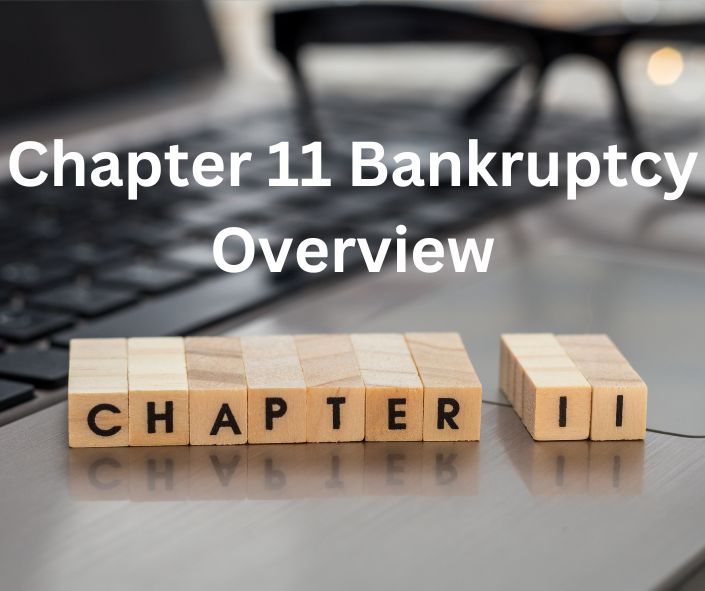 1. Overview of Chapter 11 Bankruptcy: In a Chapter 11 bankruptcy, the debtor remains in control of its business operations as a “debtor in possession” and is subject to the oversight and jurisdiction of the court. The primary goal is to allow the business to return to regular operations and sound financial health in the future.
1. Overview of Chapter 11 Bankruptcy: In a Chapter 11 bankruptcy, the debtor remains in control of its business operations as a “debtor in possession” and is subject to the oversight and jurisdiction of the court. The primary goal is to allow the business to return to regular operations and sound financial health in the future.
2. Benefits of Chapter 11:
- Business Continuation: Unlike other forms of bankruptcy that may require liquidation, Chapter 11 allows businesses to continue operations while restructuring.
- Flexibility: Chapter 11 offers more flexibility in terms of restructuring plans compared to other bankruptcy chapters.
- Potential to Reject Contracts: Businesses can renegotiate unprofitable contracts or leases.
3. The Reorganization Plan: Central to Chapter 11 is the reorganization plan. This plan outlines how the debtor will pay creditors over time. Creditors, and sometimes shareholders, vote on the plan. If accepted, the plan is confirmed by the court.
4. Eligibility for Chapter 11: While Chapter 11 is primarily for businesses, individuals whose debts exceed the limits of Chapter 13 can also file under this chapter. There’s no debt limit for Chapter 11, making it suitable for larger businesses or individuals with significant assets and liabilities.
5. Costs and Duration: Chapter 11 can be more time-consuming and expensive than other forms of bankruptcy due to its complexity. Legal and administrative fees can be substantial, and the process can last from a few months to several years.
6. Considerations Before Filing: Businesses should weigh the benefits against the costs. While Chapter 11 can provide a lifeline for struggling businesses, the time, expense, and public nature of the process (all filings are public records) can be challenging.
Conclusion: Chapter 11 bankruptcy offers a structured pathway for businesses in financial distress to restructure their debts and obligations, potentially paving the way for future success. Given its complexities, seeking guidance from a knowledgeable bankruptcy lawyer is imperative to navigate the process effectively.
What If My Business Is Bankrupt?
Facing the reality of a bankrupt business can be one of the most challenging experiences for an entrepreneur. The term “bankrupt” often carries a heavy weight, both emotionally and financially. However, understanding the options and steps to take can provide clarity and direction during such trying times. Here’s a guide to navigating the complexities of business bankruptcy:
1. Understanding Business Bankruptcy: Bankruptcy for businesses is a legal procedure that allows companies facing insurmountable debt to restructure or liquidate their obligations under the protection of the bankruptcy court. The primary goal is to provide a fresh start or an orderly exit.
2. Types of Business Bankruptcy:
- Chapter 7: Often termed “liquidation,” this involves closing the business and selling off assets to pay creditors. It’s suitable for businesses with no viable future.
- Chapter 11: Known as “reorganization,” this allows businesses to continue operating while restructuring their debts. It’s ideal for businesses that have a chance of becoming profitable again.
- Chapter 13: While typically for individuals, sole proprietors can use Chapter 13 to restructure their debts while keeping the business operational.
3. Evaluating the Situation: Before deciding on bankruptcy, consider:
- Financial Analysis: Review financial statements, cash flow projections, and outstanding debts.
- Seek Counsel: Consult with financial advisors and bankruptcy attorneys to understand the implications and potential outcomes.
4. Alternatives to Bankruptcy: Bankruptcy should be a last resort. Consider alternatives such as:
- Debt Negotiation: Work directly with creditors to modify terms or reduce debts.
- Asset Sales: Sell non-essential assets to generate cash.
- Mergers or Acquisitions: Partner with another company to strengthen financial positions.
5. Impact of Business Bankruptcy:
- Credit Implications: Bankruptcy will impact the business’s credit rating and may affect the personal credit of owners, depending on the business structure.
- Operational Changes: Under Chapter 11, the business might need to implement operational changes to become profitable.
- Emotional Toll: The process can be emotionally draining for business owners, employees, and stakeholders.
6. Moving Forward: Whether you decide to restructure or close the business, it’s essential to learn from the experience. Many successful entrepreneurs have faced bankruptcy and used the lessons learned to build even more successful ventures in the future.
Conclusion: Facing business bankruptcy is undoubtedly challenging, but understanding the options and seeking expert guidance can pave the way for informed decisions. Whether it’s a fresh start or a strategic pivot, there’s always a path forward.
What Is A No Money Down Chapter 7 Bankruptcy?
A “No Money Down Chapter 7” refers to a bankruptcy arrangement where an attorney agrees to file a Chapter 7 bankruptcy petition on behalf of a client without requiring an upfront attorney fee. Instead:
- Post-Filing Payment Plan: The attorney fees are structured into a payment plan that begins after the bankruptcy case is filed.
- Court Filing Fees: These may still be required upfront, or the debtor might qualify for a waiver or installment payments.
- Benefits: This arrangement can help individuals who are in dire financial straits and cannot afford the upfront costs of filing for bankruptcy.
- Considerations: It’s essential to understand the terms and ensure there are no hidden fees or charges.
Always review any payment agreement carefully and consult with the attorney about the specifics.
Is There A $500 Bankruptcy Lawyer Near Me?
Finding a bankruptcy lawyer for $500 can be challenging, as fees often depend on the complexity of the case and the region. However:
- Shop Around: Some lawyers, especially in less urban areas, might offer basic Chapter 7 filings at reduced rates.
- Legal Aid: Consider checking with local legal aid organizations or pro bono programs that might offer free or low-cost assistance.
- Law Schools: Some law schools have legal clinics where supervised students provide services at reduced rates.
- Beware of Quality: While cost is a factor, ensure the lawyer is reputable and experienced in bankruptcy law.
- Ask About Additional Fees: The $500 might cover the attorney’s fee, but be sure to inquire about court filing fees and other costs.
Always research and consult with multiple attorneys to find the best fit for your needs and budget.
What’s The Main Difference Between Chapter 7 & Chapter 13 Bankruptcy?
Chapter 7 and Chapter 13 are the two primary forms of personal bankruptcy in the United States, and they serve different purposes and follow distinct processes. Here’s a detailed comparison of the two:
Chapter 7 Bankruptcy: Liquidation
Purpose:
- Designed to discharge most of an individual’s unsecured debts after non-exempt assets are sold.
Eligibility:
- Must pass the “means test,” which compares the debtor’s income to the state median. If the income is too high, they may not qualify.
- Cannot have had a Chapter 7 discharge in the past eight years or a Chapter 13 discharge in the past six years.
Process:
- A trustee is appointed to oversee the case.
- Non-exempt assets (if any) are sold to repay creditors.
- Most remaining unsecured debts are discharged.
Duration:
- Typically lasts 3-6 months.
Property:
- Debtors might lose some non-exempt property, though many Chapter 7 cases are “no-asset” cases where the debtor loses nothing.
Debts:
- Most unsecured debts, like credit card bills and medical expenses, are discharged.
- Certain debts, like student loans, child support, and recent tax debts, are typically non-dischargeable.
Chapter 13 Bankruptcy: Reorganization
Purpose:
- Allows individuals with regular income to develop a plan to repay all or part of their debts over three to five years.
Eligibility:
- Must have a regular income.
- Unsecured debts must be below a specific threshold, and secured debts (like mortgages) must also be below a set limit.
Process:
- The debtor proposes a repayment plan based on their income, expenses, and types of debt.
- The court and creditors must approve the plan.
- The debtor makes payments to a trustee, who then distributes the funds to creditors.
Duration:
- Repayment plans last either three or five years, depending on the debtor’s income.
Property:
- Debtors can keep their property, but they must continue to pay secured debts and repay arrears over the plan’s life.
Debts:
- At the end of the repayment plan, most remaining unsecured debts are discharged.
- Like Chapter 7, certain debts like student loans and child support are typically non-dischargeable.
Key Differences | Ch7 vs Ch13:
- Nature: Chapter 7 is about liquidating non-exempt assets to pay off debts, while Chapter 13 is about reorganizing debts and setting up a repayment plan.
- Duration: Chapter 7 is relatively quick, often completed within months, while Chapter 13 lasts several years.
- Property: In Chapter 7, there’s a risk of losing non-exempt property, while Chapter 13 allows debtors to keep their property.
- Debt Limits: Chapter 13 has specific debt limits, while Chapter 7 does not.
- Income Considerations: Chapter 7 requires passing a means test, while Chapter 13 requires a regular income to ensure repayment capability.
It’s essential to consult with a bankruptcy attorney to determine which chapter is more suitable for an individual’s specific circumstances.
More Houston Bankruptcy Attorney Questions
What If My Wife Took All My Money?
If your wife took all your money without your knowledge or consent, it's essential to act promptly: Document Everything: Gather bank statements, transaction records, and any other relevant financial documents. Consult an Attorney: Seek legal advice to understand your rights and potential remedies. This is especially crucial if you're considering divorce or are already in the process. Communication: Attempt to discuss the situation with your wife, preferably in a neutral setting or with a mediator, to understand her reasons and potentially reach an agreement. Protect Your Assets: Consider changing your bank account details, passwords, and setting up alerts for large transactions. Remember, every situation is unique, and it's crucial to approach the matter with caution and seek professional guidance.
Where Can I Read Your Houston Bankruptcy Lawyer Reviews?
To read reviews about our Houston Bankruptcy Lawyer services: Visit Our Website: Navigate to the Testimonials or Reviews section for firsthand accounts from our clients. Online Directories: Check platforms like Avvo, Yelp, and Google My Business for ratings and feedback. Ask Us Directly: We're proud of our reputation and can provide references upon request. It's always a good idea to read multiple reviews to get a comprehensive understanding of our clients' experiences.
How Do I Pay For A Bankruptcy Lawyer If I'm Declaring Bankruptcy?
Paying for a bankruptcy lawyer when facing financial difficulties can seem paradoxical. Here are some common approaches: Payment Plans: Many lawyers offer flexible payment plans, allowing you to pay fees over time. Retainer Fee: Some attorneys might require a retainer, a sum paid upfront, with additional costs billed as the case progresses. Borrowing: Consider borrowing from friends, family, or taking a personal loan. However, be cautious about incurring more debt. Selling Assets: Liquidate non-essential assets to cover legal fees. Chapter 13 Consideration: If filing for Chapter 13, attorney fees can sometimes be incorporated into the repayment plan. Always discuss fees openly with your attorney to understand costs and explore available options.